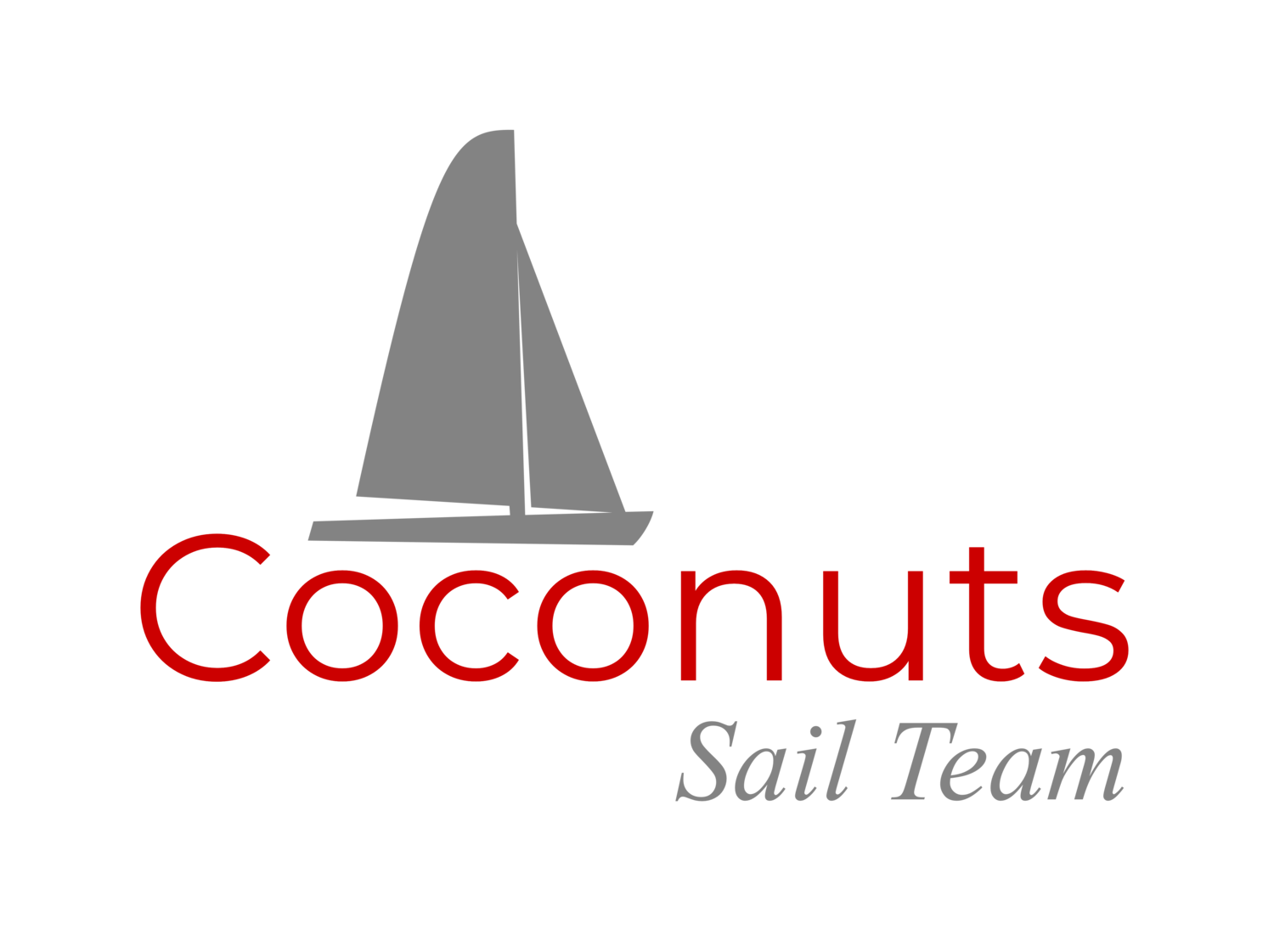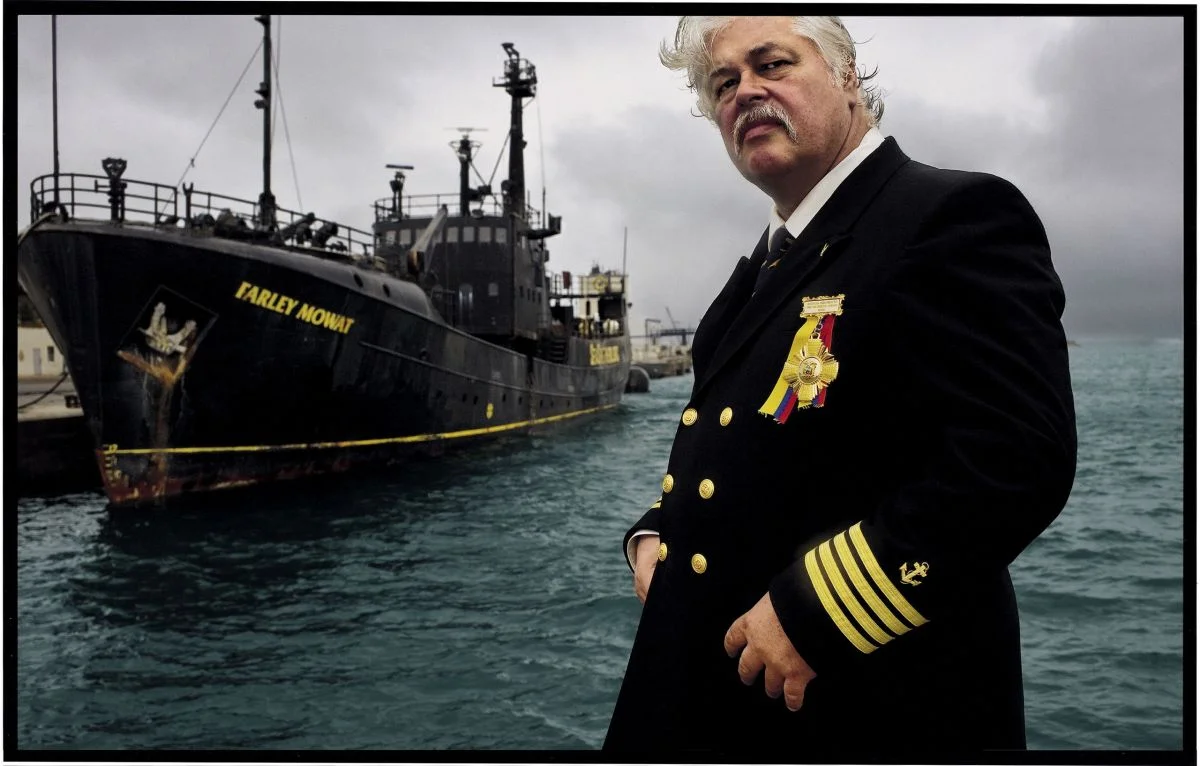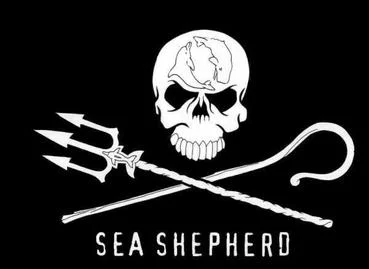I wish not to inflict my humble opinion on you but only would like to set the record straight by giving you the facts. I feel as though I am in a position to do so because I have spent a lot of time in places that are in the Sea Shepherd’s cross-hairs, as well as being connected to a large community from many different "walks of life" in many difference countries. I was recently on Francis Joyon’s “around the world record attempt” website where in a video he paid tribute to the founder and captain of the Sea Shepherd Conservation Society, Paul Watson. It was calling him a hero and comparing him to his own work and I could not help but to notice all the erroneous statements there in. It is often that I am confronted with this sort of situation where I am hearing opinions from people I admire or from friends that I care for but their statements aren't based on facts but rather on what they hear from the media.
Paul Watson
For those of you that might not be familiar with Sea Shepherd, it’s an organization that prides its self on marine conservation and especially large marine animals like whales. They use “direct action” by ramming, sinking, and terrorizing vessels that partake in legal and illegal fishing and whaling. Sea Shepherd produces a large amount of media from making movies to writing books which leads to mountains of propaganda that get circulated which is not founded on factual evidence. Watson has often been cited by his fellow volunteers as someone who takes action without thinking and the problem is that it is hard to tell what is fabricated and what is the truth because he has convinced himself of the truth and because of this he sounds very convincing. For example, in one of his books titled “Earthforce”, a strategy manual for radical environmentalism, he states that “when in need of facts don’t be afraid to make them up, say them confidently while confronting the media.” This sort of attitude has spawned many misconceptions that circulate the media. Often clashes take place far from shore in international waters where Watson can take full control of the narrative. It soon became apparent why I have been asked “What was it like spending time in a place where they have to kill a whale to become a man as a right of passage?” (referring to The Faroe Islands). Well, I can reassure you that is not the case in the Faroe Island. Yes, they do whale there and have been doing so for centuries. The earliest written document about the whale hunt is from the year 1298. The Faroese regulate how the hunt shall be done. You can’t go and buy whale at a supermarket and there is no exporting of the meat, it is a non-commercial activity. The Faroese people must get in a boat and head out to sea to capture a whale, it is for self consumption and shared among the community. The Faroe Islands legislation last year reported 48 pilot whales hunted. They have been keeping tabs on whaling since the 1500’s. All whaling is done by anyone that has taken a course on how to do so properly and the Faroese whale legally in accordance to international law.
Watson has exploited a United Nations charter from 1982 that says sovereign nations alone are the ocean protectorates and allows private citizens to assist safeguarding areas that are not under jurisdiction of any nation. Watson believes this gives him full authority to do as he wishes as long as he is protecting nature. He believes this charter blindly, so much so, that he claims he is not breaking the law while posting articles on his website to generate donations for “Operation Asshole” for which he fitted his ship with a pointy bit on the bow so that he can ram a ship up the stern. It has been a miracle that no one has been killed on such masquerades, I imagine that it is only a matter of time. Though they have had several close calls, one in particular where they lost their zodiac in the southern ocean with 2 crew members/volunteers onboard. They had no flares and their radio suffered water damage so they took shelter near an iceberg as it began to snow and after several hours they were luckily found. Ironically the Japanese vessel they were pursuingjoined in to help in the search and rescue. Watson was criticized by his crew for his lack of urgency to make a distress call, later saying “I didn’t want to loose the Japanese’s whaler.” As you can imagine this has not gone over so well with the United Nations and is viewed by all nations including the USA (where Sea Shepherd is based) as wrong and a misinterpretation of the laws of the high seas. Maritime law states that “no vessel is permitted to interfere with any vessel in the high seas”.
Iceland has been criticized by the organization and Watson has managed to sink 2 whaling boats in Reykjavik harbor, just opposite from where we spent our winter (2014/2015). Iceland does participant in whaling mainly for Icelandic consumption. Similarly to the Faeroes Iceland has been eating whale for over 1000 years. For the Icelandic people it remains a symbol of survival. Other symbols of survival for the Icelanders, for example, is to eat a poisonous shark. At some point in the history of the Icelandic struggle to survive, they figured a way to eat a shark that when fresh is poisonous and only after burring the meat underground and left to ferment can it be eaten safely. You can imagine how close to starvation that first person was who stumbled upon a fermenting poisonous shark and said “Well, screw it! I’ll eat anything!” and took a chance bite. Icelanders still eat fermented poisonous shark, not because they are starving, but because it played an important roll in their survival and therefore in their history. Much like the human attraction to open fire, I myself can’t look at a camp fire without admiration, knowing that it’s discovery came from our absolute dependency on it. The Icelandic population has gone through many fluctuations in history due to hardships. You don’t have to look too far into the past to hear great stories of survival. I was speaking to a friend in Ísafjördur in North Iceland who told me a story about his Grandfather, who lived across the fjord. One winter his Grandfather and his family were beginning to starve when he heard of a whale that had beached itself in the next bay months before. He went with others in a rowing boat many miles in open ocean to reach the site and managed to salvage enough meat to survive the winter. Iceland on average takes 40 minke whales a year legally in accordance to quotas set by the International Whaling Commission.
It may be difficult for some cultures with our privileges to understand such practices as whaling in the twenty-first century, and many find it easy to condemn these actions as barbaric, needless and illegal. No doubt, just like any facet of life, there are poachers and ones who break the law but this is surely not the majority. What is important is to take in perspective the entire picture, nearly every marine scientist agrees that far more whales are killed every year from non whaling activities such as shipping, noise and general pollution. It’s estimated that 90% of all right whale deaths are due to collision with shipping container vessels and from being caught in fishing nets. The North Atlantic right whales are one of the most endangered species with only 460 left. According to Scientific America 67% of all whale deaths are human related but not associated with the practice of whaling. The sound that is emitted from the propellers of large ships has been known to disorient whales and dolphins sending them to the beaches. NOAA has reported since May 2015, 11 fin whales, 14 humpback whales, one gray whale, and four unidentified cetaceans have been stranded around the islands of the western Gulf of Alaska and the southern shoreline of the Alaska Peninsula. By-catch (the unwanted fish and other marine creatures caught during commercial fishing for a different species) is a huge factor, in the US alone 1 million tons of by-catch was reported in 2014 which makes up 20% of the entire US fishery, the gulf coast area being the worst with as much as 80% of by-catch in nets while fishing for shrimp. These are huge numbers that eclipse that of whaling. For perspective, the city of New Orleans has a population of 378,000 shrimp-eating people while the entire countries of Iceland and Faeroe Islands have a combine population of about the same. It seems as though those 2 million or so dollars that Sea Shepherd blows every year on shenanigans and cowboy publicity could go to much better use.
So come on Watson get your shit together. Sorry that was a bit of my own “humble” opinion there at the end.
Sea Shepherd's logo



